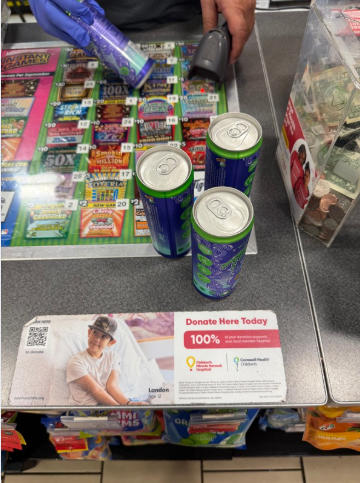Animal testing needs to be stopped

May 17, 2016
Flipping through the channels while getting ready in the morning, you stumble upon a Humane Society commercial where sad animal eyes stare back at you and beg you for adoption. Sad as you brush your teeth or put on your makeup, you’re oblivious of one fact- that you could be causing this sad state of animals through the products you use.
Many products are tested on animals who live in labs all over the country, and according to PETA, this testing causes over 100 million animal deaths, and countless more injuries. These animals are completely innocent and are victim to what is seemingly torture for almost no reason, as some tested products don’t work well on humans. A major argument for those advocating this torture states that the animals aren’t cognitive and therefore the testing is perfectly fine, but it’s common knowledge that all animals can feel pain. Some animals may know the significance of why they’re constantly being pushed around, but it’s almost worse for those who do not. What if we inflicted this same “science” upon people? It would clearly be known as cruel and unusual punishment. Why, then, is the fact that so many innocent animals are harmed for our benefit perfectly natural to us? Shouldn’t we do something to stop it? Some scientists have gone as far as to say that the pain inflicted upon animals in these tests is a form of Richard D. Ryder’s idea of “speciesism”, which is similar to the now widely-recognized inhumane slavery or human trafficking some people are forced to endure. Although this idea may sound intense, it’s true; why would we hurt animals that have done nothing to harm us for the simple want of a pretty face? Aren’t animal lives so much more important than our personal appearances?
Most people don’t know the details of the exploitation some animals must endure for our own benefit, but the tests they must go through are absolutely awful. In one test for the toxicity of certain products entitled the LD50 test, that product must be injected into a test population until half of the animals in that group die. Another test for toxicity, the Draize test, usually performed on rabbits, calls for a product to be injected into the animal’s eye as a measure of corrosion or irritation caused to the area. This test not only causes a painful experience for the animal that usually results in its death, but it also more often than not produces unreliable test results, so people who use the product may still be subject to injury. It doesn’t take much thought to realize that these tests are inhumane, and that their outcome isn’t worth the pain they cause to innocent animals who could spend their entire lives in a lab.
Important scientific discoveries have been made, however, there are other testing options available that are both more adaptable to humans and don’t utilize the endangerment of animals. The LD50 test is working to be replaced by the IC50 test, which involves cell cultures as opposed to innocent animals, and the Draize test is being outdated by Episkin, an experiment involving skin-like paper as opposed to rabbits. Although this is the case, there’s still a long way to go before all animals are free from the terrors of product testing, and an immense amount of harmless creatures still must go through this torture. We need to work until non-animal tests rise over the alternative, and innocent animals can be safe from harm.
People may argue that animal testing is necessary, especially when the product being tested is medicine that can be vital for health, but due to the fact that animals react to stimuli in different ways than humans, this argument is invalid. This idea is clearly shows through cases such as that of the Vioxx arthritis drug, which protected the hearts of mice when tested, but gave many humans heart failures resulting in death. With the recent rise of non-animal tests mentioned before, it’s only logical that we work to prevent the harm of both animals and humans by switching to tests with cell cultures as opposed to small animals. In the 50’s, another case was shown where a thalidomide sleeping drug which was tested positively on mice caused deformities in babies, and both the rodents and the children were hurt considerably for no reason. Many other situations have been reported where drugs that were tested on animals produced devastating results on humans. In order to ensure the safety of everyone involved, it’s necessary that we switch to products that don’t test on animals.
Although it may seem difficult to stop the many deaths of animals due to testing, you only have to check that the products you purchase at the store don’t test on animals. Products that have not been tested on animals are usually the same quality as those that have, and if enough people merely check the labels on their products before purchasing them, all this pain inflicted on harmless creatures can be put to an end. No animal deserves to go through this horror, and it is only together that we can ensure that they’re kept safe.






